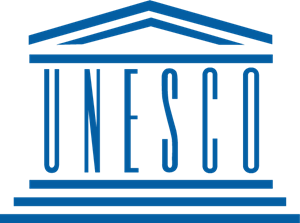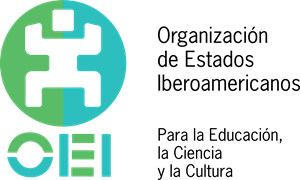International cultural organizations or institutions
In the
world, there is a great variety of international organizations and institutions
dedicated to the preservation of culture. In words of Fernández Liesa,
international cultural institutions are organizations that aim at international
cultural cooperation, or that have been created for reasons of cultural
affinity. These institutions foster the care and preservation of culture and
cultural heritage.
There are
a great variety of international institutions operating today, within the most
known we find:
- UNESCO
- OCPM
- OEI
UNESCO
 |
| The United Nations Educational, Scientific and Cultural Organization emblem |
According
to the UN, UNESCO is the United Nations Educational, Scientific and Cultural
Organization. Work to create the conditions conducive to a dialogue between
civilizations, cultures and peoples, based on respect for common values. It is
through this dialogue how the world can conceptualize sustainable development
involving the observance of human rights, mutual respect, poverty reduction and
peace.
This
specialized agency of the United Nations was founded in 1945 after being signed
the Constitution of UNESCO, and entered into force until the present time in
1946
The task of
UNESCO to create the conditions conducive to a dialogue between civilizations,
cultures and peoples founded on respect for common values. It is through this
dialogue as the world can conceptualize sustainable development that involves
the observation of human rights, mutual respect and reduction of poverty, the
objectives that are at the very core of the mission and activities UNESCO.
UNESCO's
mission to consolidate peace, eradicate poverty, sustainable development and
intercultural dialogue through education, science, culture, communication and
information.
OCPM
 |
| The Organization of World Heritage Cities emblem (OWHC) |
The
Organization of World Heritage Cities (OWHC) was founded on September 8, 1993
in Fez, Morocco. The Organization is composed of 280 cities in which are
located sites included on the UNESCO World Heritage List. These 280 World
Heritage Cities have a combined population of over 164 million. Within the
Organization, these cities are represented by their Mayors with the active
participation of their heritage management specialists.
The
primary objectives of the Organization are to favor the implementation of the
World Heritage Convention, to encourage co-operation and the exchange of
information and expertise on matters of conservation and management as well as
to develop a sense of solidarity among its member cities. To this end, the OWHC
organizes many meetings: World Congresses, conferences, seminars and workshops
dealing with the challenges to be met in the realm of management and strategies
pertaining to the preservation and development of historic cities. Moreover,
the OWHC offers to its city members many programs and projects which aim to
promote and support the maintenance, recognition and development of their world
heritage.
OEI
The
Organization of Ibero-American States for Education, Science and Culture (OEI)
is an international governmental body for cooperation between Ibero-American
countries in the field of education, science, technology and culture in the
context of development, democracy and regional integration. Full member states
and observers are all Ibero-American countries that make up the community of
nations comprising Andorra, Argentina, Bolivia, Brazil, Colombia, Costa Rica,
Cuba, Chile, Dominican Republic, Ecuador, El Salvador, Equatorial Guinea,
Honduras, Mexico, Nicaragua, Panama, Paraguay, Peru, Portugal, Uruguay and
Venezuela. The headquarters of its General Secretariat is in Madrid, Spain, and
has Regional Offices in Argentina, Bolivia, Brazil, Chile, Colombia, Dominican
Republic, Ecuador, El Salvador, Guatemala, Honduras, Mexico, Nicaragua, Panama,
Paraguay, Peru and Uruguay. The funding of the IEO and its programs is covered
by the mandatory contributions and voluntary contributions made by the
Governments of Member States and by the contributions of institutions,
foundations and other bodies interested in quality improvement to certain
projects educational and scientific-technological and cultural development.
References
References

Comments
Post a Comment